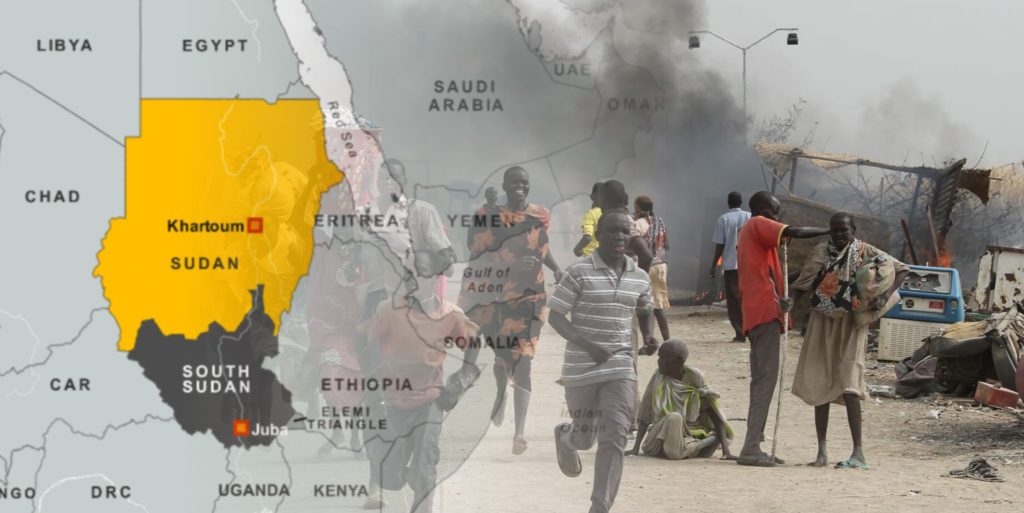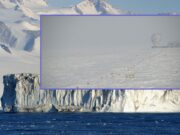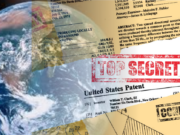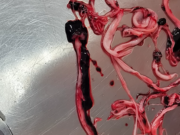
[Editors Note: This was first published on 28 February 2018 at her kellietranter.com]
by Kellie Tranter
The idea of Australia planning a “diplomatic offensive” to deepen its strategic relationship with the United States is beyond offensive. Whether it’s Vietnam, Iraq, Afghanistan, Libya or Syria, to name a few, there’s not an ounce of objectively rational strategy involved in our ally’s foreign military incursions.
South Sudan is a case in point.
The civil war there is now entering its fifth year, but there’s no coverage of the involvement and strategic blunders of our ally in the establishment press. It’s also difficult to turn up much information about the nature and extent of Australia’s involvement there.
On 12 February 2018, Defence media confirmed that ‘The Australian Defence Force’ has no Special Forces personnel in Africa.’ It further confirmed on 19 February 2018 that ‘The Australian Defence Force (ADF) does not have any Special Forces personnel embedded with the United States in US Africa Command (AFRICOM)’, but that it “…has approximately 20 personnel deployed with the United Nations to South Sudan, as part of Operation ASLAN…under the command of the United Nations.”
According to Defence media “The ADF has contributed personnel to the United Nations” Mission in South Sudan (UNMISS) since 23 September 2011 and Australia’s commitment assists the UN to protect the people of the Republic of South Sudan through the monitoring of human rights and the delivery of humanitarian aid. ADF personnel are not deployed in combat roles. They fill important UNMISS headquarters positions such as military liaison officers, aviation, logistics support roles, and a national support element. The ADF contingent, comprising personnel from all three Services, deploy to ASLAN for between six and nine months.’
The Australian Defence Force has also recently agreed to help Vietnam deploy a peacekeeping contingent to South Sudan and to provide some of their equipment.
But how did all of this come about?
Mostly we hear that South Sudan is the youngest nation on Earth. Its people fought against the north for more than 20 years in a bitter war for independence — more than two million people died.
We hear that ‘freedom finally came in 2011 but the new nation dissolved into civil war less than two years later, after President Salva Kiir, an ethnic Dinka, fired his deputy, Riek Machar. Kiir hails from the Dinka people, the largest of South Sudan’s ethnic groups. Machar is from the Nuer. And the civil war really began as an ethnic cleansing campaign in the capital after Machar said he would challenge Kiir for the presidency in upcoming elections—elections that never were held.
Kiir’s troops went throughout Juba, the capital, slaughtering civilians and soldiers of the Nuer ethnic group. Since then, the civil war has fractured in many ways, and now its targets are not only the Nuer, but also ethnic minorities in the south of the country—the Acholi people, Madi, Kuku, Kakwa, Azande. These other, smaller ethnic groups are being chased from the country.’
What we don’t hear much about is the fact that South Sudan is “a product of US foreign policy”. The United States backed South Sudan’s independence in 2011 and South Sudan’s president, Salva Kiir, whose troops are now accused of carrying out the majority of crimes in the ongoing war. Consistent with our “strategic ties” to our ally, Australia recognised the state of South Sudan on 9 July 2011 and established diplomatic relations.
Since then tens of thousands have died, and 3.5 million of the country’s 12 million citizens have fled their homes, creating Africa’s largest refugee crisis since Rwanda’s 1994 genocide. The chairperson of the UN Commission on Human Rights said the stage was being “set for a repeat of what happened in Rwanda.”
According to respected American investigative journalist Nick Turse:
“South Sudan was an American nation-building experiment, the recipient of $11 billion in assistance since 2005—perhaps the largest investment the United States has made in sub-Saharan Africa. Washington and other international partners trained soldiers and mentored government officials, but they ignored the country’s stunted economic, military, and political development, which left South Sudan mired in corruption, ethnoracism, and violence.
“Six years after independence, most people still lack electricity, phone networks are spotty, and paved roads are nonexistent outside the capital, Juba.
“In 2014, as the conflict raged between the S.P.L.A. and Machar’s rebels, known as the Sudan People’s Liberation Army—In Opposition (I.O.), Kiir visited the White House. A former guerrilla, he is often photographed in one of the cowboy hats given to him by President George W. Bush or Secretary of State John Kerry.
“Unwilling to pressure Kiir and the leaders they had fostered, the Obama Administration failed to impose a unilateral arms embargo. An eleventh-hour push for an international arms ban at the U.N. Security Council collapsed [in 2016], in part because the outgoing U.S. administration lacked sufficient political capital. As a result, Kiir has been able to purchase $1 billion worth of arms, including tanks and helicopter gunships.”
Turse also points out that “for years the United States allowed the government of South Sudan to keep child soldiers in its military ranks”, utilising loopholes to circumvent the Child Soldiers Prevention Act. While Hillary Clinton was Secretary of State, President Obama’s State Department provided waivers that allowed South Sudan to keep children in its military and still keep receiving US assistance.
The sting in the tail for us is that Australia has contributed to the World Food Program and aid programs that help children’s education (particularly former child soldiers) and the health of women and children.
In February this year the United States issued an arms embargo on South Sudan. It was largely symbolic given that it doesn’t currently sell arms or provide defense services to South Sudan. But America’s great ally, Israel, was slotted when a UN panel of experts in 2016 found “well-established networks of arms suppliers in Eastern Europe and the Middle East that are fueling the war in South Sudan”.
In August 2017, ‘Israel took the position before the High Court of Justice that there was no evidence any Israeli individual or entity has committed a criminal offense by exporting weapons to South Sudan. The assertion came in response to a petition seeking a criminal investigation into Israeli arms sales to South Sudan, and suspicions that this was a war crime and crime against humanity.
The petition was filed by 54 Israelis concerned about the sale of Israeli-made Galil ACE rifles sold to a militia associated with the South Sudanese government. The militia used the weapons for an assault on members of the Nuer tribe in the country in 2013, marking the outbreak of the civil war. The petitioners, through their lawyer Eitay Mack, claim that Israeli officials who dealt with the issue should have understood that there were risks associated with the rifles export.’ [source??]
It also comes as no surprise that Russia and China [which has substantial oil interests in South Sudan] abstained from the 2016 arms embargo vote. In 2015 a UN panel of experts said that a major Chinese state-owned arms supplier sold more than $20 million of weapons to South Sudan’s government in 2015, several months into the country’s deadly internal conflict.
According to the experts China North Industries Corp., or Norinco, sold South Sudan’s government 100 anti-tank guided missile launchers, 1,200 missiles, about 2,400 grenade launchers, nearly 10,000 automatic rifles and 24 million rounds of various types of ammunition. South Sudan’s military has somehow also obtained four attack helicopters since the start of the conflict.
Even the UN’s mission in South Sudan (UNMISS) is not without criticism. In January a report by the Geneva-based research group Small Arms Survey accused it of lacking neutrality by giving arms to rebels in the town of Bentiu in 2013. It blamed UNMISS for underreporting arms confiscated from fleeing soldiers and handing over the weapons to soldiers of the Sudan People’s Liberation Movement-in-Opposition (SPLM-IO) on more than one occasion. The report also claimed that shortly after this transfer of arms, the rebels went on to carry out a massacre of civilians.
Again, the operations of UNMISS were a focus of criticism after revelations that its troops failed to protect civilians following clashes between government forces and former rebels in July 2016. An internal investigation found that its peacekeeping mission in the capital, Juba had failed to achieve one of its core mandates, namely “to protect civilians under threat of physical violence […] with specific protection for women and children”. It described the troops’ response as chaotic and ineffective.
In 2017 it was reported that United Nations peacekeepers in South Sudan were moving more aggressively to protect civilians caught in the country’s four-year civil war, after years of criticism for failures that led to the sacking of the mission’s military chief last year. However ‘Despite more robust peacekeeping, the violence continues. The mission has 12,000 armed peacekeepers and a budget of over a billion dollars. But that’s not enough to patrol a nation the size of France with under 300 km (185 miles) of paved roads…. Part of the problem is that the U.N. needs permission from South Sudan’s government for its presence. That can interfere with investigations or interventions aimed at government forces.’
What are we left with in South Sudan? Emboldened strongmen, corruption, no movement to impose an international arms embargo, talk of the real potential for genocide and ethnic cleansing, limited leverage of aid over the South Sudanese government, a card that cannot be played because of the staggering number of people in need, a deteriorating security situation which will no doubt bring calls for the deployment of more military personnel and the absence of any coherent strategy. History is repeating itself time and time again, yet we just don’t learn.
On that background, what are the innocent men, women and children of South Sudan – or Syria or Afghanistan or Iraq, for that matter – supposed to make of reports that Australia is planning a diplomatic offensive to deepen its strategic relationship with the United States, with a “secret weapon” booked to entertain US governors, business leaders and top officials?
At some point the worm will turn. The question for Australia is, what will our involvement be at that point? The answer won’t be pretty if we’re in the existing strategic relationship with our ally, let alone in a deeper one.
 –Kellie Tranter of Maitland NSW is a lawyer and human rights activist. She runs a website with critiques of current events at kellietranter.com. She has stood for parliament as an Independent.
–Kellie Tranter of Maitland NSW is a lawyer and human rights activist. She runs a website with critiques of current events at kellietranter.com. She has stood for parliament as an Independent.






























Here is how I remember Wesley Clark’s 7 countries to be destroyed by us Americans (as told to Amy “controlled opposition” Goodman in 2007):
2 i’s, 1 L , 3 S’s, and 1 Y. Hence, Iraq, Iran, Libya, Somali, Syria, SUDAN, and Yemen.
Granted, at that point there was no separate South Sudan. (Achieved later, in 2011)
So you can take your pick as to whether we meant regime change n the main country, or general screwing of the Christians in the South.
Purpose?????????????
In the name of freedom we the imperialist powers realize that if Africa becomes a world power and manufactures military that having the capacity ti breed possible 5 billion people they are a threat to us the white population or mainly white, in the name of world peace we must keep killing blacks as they are known to breed well wheras us whites are having problems with wholistic breeding,I sugest it inconsequential as to explain why we kill these people, we have many white personel that have a appetite to kill people in particular blacks, I a suggest we let nature take its rightful course that we being superior should be summoned to do our duty.
Excuse me if i go off topic for a minute. Yesterday in comments to my Port Arthur article, I made up a case of a lady who was suing because the police over-sprayed her with mace, and laughed at her while doing so.
By God, merely by chance today I saw a video of the Don Dale detention center in NT, where children are mistreated. In go the police, vastly over-spraying the mace, and laughing at the child who is choking.
U must go to the bottom of this page for the video:
http://www.abc.net.au/news/2017-04-28/former-chief-quizzed-over-what-he-knew-of-detention-conditions/8480284
What makes you think he knew anything when 99% of issues raised with any Minister are automatically diverted to some bureaucrat or other.
I’m not saying that that alleviates the guy’s guilt in any way; ignorance can’t very well be passed off as innocence.
Sorry, that question was meant to be directed toward the Commissioner, not you
As Sudan is, like Afghanistan, a territory inhabited by divers nations, the ramifications of any colonialist enterprise must have been well foreseen in advance